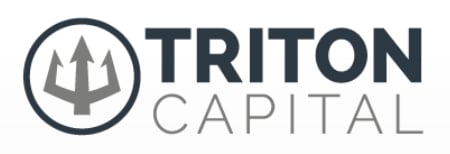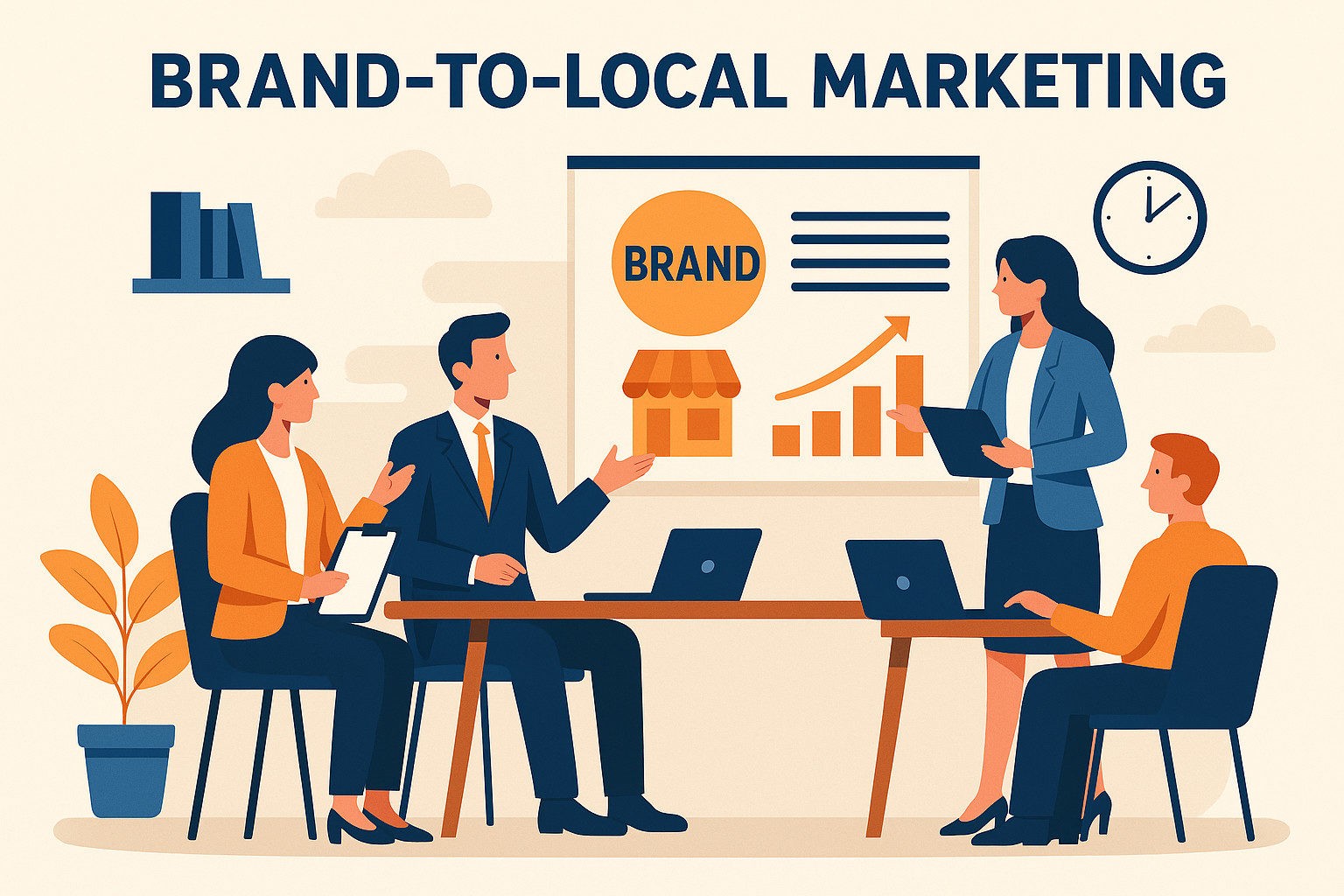If you have physical assets, you might consider putting them up as collateral to secure your small-business loan. Providing collateral reduces risk for the lender, which can help increase your chances of approval, as well as help you access the most competitive interest rates and repayment terms.
Here’s what you need to know about secured business loans and how to get one.
We’ll start with a brief questionnaire to better understand the unique needs of your business.
Once we uncover your personalized matches, our team will consult you on the process moving forward.
What is a secured business loan?
A secured business loan is backed by some form of collateral, usually tangible business assets, like inventory, property or equipment. If you fail to repay and your business loan goes into default, the lender can claim the collateral to recover its losses.
How to secure a business loan
You can secure a business loan in different ways, using any or several of the following:
🏠 Property. This can include business and personal assets, such as real estate, office equipment, manufacturing equipment, vehicles or your home.
🚜 Equipment. Equipment you already own can be used as collateral. However, you can also get self-securing financing, in which the equipment you’re looking to buy serves as collateral. This is known as equipment financing.
🛍️ Inventory. Similar to equipment, inventory can be used to secure a loan in two ways. You can use existing inventory as collateral, or you can get inventory financing, in which you use a loan to buy new inventory and that inventory then serves as collateral on the loan.
🧾 Invoices. You can use your outstanding customer invoices as collateral to get a cash advance from a lender. Also known as invoice factoring, lenders advance you a percentage of your unpaid invoice, and when your customer pays the invoice, you receive the remaining percentage minus the lender’s fees.
💵 Savings. You can use the cash in your bank account to secure a business loan. Some lenders may prefer cash because it’s the most liquid type of collateral.
🤝 Personal guarantee. A personal guarantee is a legal agreement that holds you personally responsible for your business’s debt and allows the lender to claim your personal assets to cover the debt if your business can’t pay. Sometimes, adding a second person to guarantee the loan, or a business cosigner, can also serve as a way to secure a business loan.
🏛️ Uniform Commercial Code lien. A UCC lien gives a lender the right to seize your business’s assets if you can’t repay your loan. A UCC lien is an official document, typically filed with the applicable secretary of state’s office after you’ve signed your loan agreement. Lenders may file a UCC lien on specific business assets such as equipment, or they’ll file a blanket lien, which covers all assets.
It’s important to note that some secured business loans are backed by physical assets as well as personal guarantees and/or UCC liens.
Types of secured business loans
Any type of business loan can be secured if backed with physical collateral. Here are some common types of loans, however, that may require collateral:
SBA loans
SBA loans are issued by banks and credit unions and partially guaranteed by the U.S. Small Business Administration. These loans offer low interest rates and long repayment terms, and can be used for a wide variety of purposes.
SBA 7(a) loans are the most popular type of SBA loan, and typically require collateral for financing amounts over $50,000[0]. SBA 504 loans can only be used to finance large, fixed-asset purchases. For these loans, the property or equipment you’re purchasing serves as collateral. Both 7(a) and 504 loans require a personal guarantee.
Business term loans
A business term loan is a lump sum of capital that you borrow from a lender and repay over a specific period of time, with interest. Although some online lenders issue secured term loans, you’re more likely to find these options from banks and credit unions.
Secured term loans often have longer repayment terms and lower interest rates than their unsecured counterparts.
Business line of credit
A business line of credit allows you to borrow up to a certain amount and only pay interest on the funds you borrow. You then repay the funds and can continue to pull from your credit line. Like term loans, secured business lines of credit are more prevalent among traditional lenders.
Secured business lines of credit may offer larger credit limits and lower interest rates. You may also find certain secured credit lines designed to help newer businesses build credit and establish a positive account history.
Equipment financing
Equipment financing is a loan that’s used specifically to buy machinery or equipment for your business. With this type of loan, the equipment you purchase serves as collateral.
Because the equipment itself secures the loan, you may not need to rely as heavily on other standard business loan requirements, such as personal credit or time in business to qualify.
Commercial real estate loans
Commercial real estate loans are used to purchase or renovate commercial properties. Similar to the way equipment financing works, these loans are secured by the commercial property that you’re purchasing or renovating.
To qualify for a commercial real estate loan, however, you’ll likely need multiple years in business and strong credit. You may also need to provide a down payment.
Best secured business loan options
SBA 7(a) loan
$5,000,000650
iBusiness Funding – Online term loan
$500,000660
Triton Capital – Equipment financing
$250,000580
SBA microloan
$50,000620
Wells Fargo Prime Line of Credit
$1,000,000680
Bank of America Business Advantage Secured Term Loan
$250,000700
Secured vs. unsecured business loans
Unlike secured business loans, unsecured business loans don’t require you to provide physical collateral. They might, however, still require a personal guarantee or UCC lien.
The table below outlines the differences between secured and unsecured business loans:
Typically require physical or financial collateral and may also require a UCC lien or personal guarantee.
Typically require a UCC lien or personal guarantee.
Tend to be longer because your collateral reduces the lender’s risk.
Tend to be shorter so the lender can be repaid quickly.
May be lower than unsecured business loans, depending on the lender and your overall qualifications.
May be higher than secured business loans, depending on the lender and your overall qualifications.
Pros and cons of secured business loans
Using collateral to reduce risk for the lender may help you access larger loan amounts, lower interest rates and longer repayment terms.
Collateral may increase chances of approval and can help newer businesses or borrowers with bad credit qualify.
Assets you use as collateral are at risk if you can’t repay your financing.
Can be slower to fund than unsecured loans, especially if the lender requires an appraisal of your collateral.
How to get a secured business loan
Follow these six steps to get a secured business loan.
1. Determine your funding needs
First, you should determine how much and what type of funding you need. If you’re looking to buy real estate or equipment, for example, a specialized type of financing might be the best fit. On the other hand, if you need working capital or want to fund an expansion, a business term loan might be a better-suited choice.
You should also consider how much debt you can afford. It can be helpful to use a business loan calculator to estimate interest costs and potential payment amounts.
2. Evaluate your qualifications
Although collateral will be crucial to your application, it’s important to understand other business loan requirements as well. Most lenders will consider your personal credit score, time in business and annual revenue in their decision-making process.
Banks, credit unions and SBA lenders will typically have stricter requirements compared with online lenders — even if you’re securing a loan. Online loans tend to have higher business loan rates, however.
3. Identify and assess the value of your collateral
You should consider which of your business assets can be used as collateral. Real estate, equipment, inventory and invoices are among potential options.
Once you’ve determined the type of collateral you’re going to use, you’ll want to assess its value. Although your lender may request a separate valuation, performing your own assessment ahead of time can help you better understand your potential borrowing power.
For example, a bank might lend you up to 85% of the value of a secured piece of real estate. If that property was assessed at $500,000, then the maximum amount you could borrow is $425,000.
4. Compare secured business lenders
You should research several lenders to find the best options for your needs:
🤓Nerdy Tip
As you compare different small-business lenders, you’ll want to look into factors such as collateral requirements, interest rates, fees, repayment terms, available loan amounts and funding speed. You should also consider a lender’s other qualification requirements, customer service and reputation.
5. Gather your documentation and apply
The documents you’ll need to complete your business loan application will vary by lender. In general, however, you’ll be asked to provide some, if not all, of the following:
Basic information about you and your business.
Business and personal tax returns.
Business and personal bank statements.
Business financial statements.
Detailed information about your collateral.
If you apply with a bank or credit union, you may need to visit a branch to complete and submit your application. Online or private business loans, on the other hand, offer a streamlined, digital application experience.
6. Review your loan agreement
Once you receive approval, your lender will send you a business loan agreement. You’ll want to review the agreement thoroughly and make sure you understand all of the terms and conditions. Since you’re securing your loan with collateral, you should also verify that all of your collateral information is accurate.
If you have any questions or concerns about the document, you can reach out to your lender for clarification before signing.
Concerned about tariffs?
Many small-business owners are under increased economic stress and uncertainty following the latest tariff announcements. NerdWallet is here to help you find answers for whatever you’re looking for. Here are some resources to help you get started:
Alternatives to secured business loans
If a secured business loan isn’t right for your business, consider these other types of financing:
Unsecured business loans. If you lack existing collateral, unsecured business loans may be a worthwhile option. These loans aren’t secured with physical assets, but they will typically require a personal guarantee and/or UCC lien. Remember that some funding — like equipment loans or commercial real estate loans — can be secured with the property you’re financing. You don’t necessarily need collateral before you apply for these kinds of secured loans.
Accounts receivable factoring. Accounts receivable factoring is a type of funding in which you sell your company’s unpaid invoices to a factoring company. This type of financing can be a good option for borrowers with bad or limited credit histories. Because you’re selling your unpaid invoices, factoring companies tend to rely more heavily on your customers’ credit and payment histories when evaluating your application.
Business credit cards. Business credit cards offer flexible financing to businesses of all ages. In particular, startups can use business credit cards to pay for everyday purchases, as approval is based on your personal credit history. To avoid accruing expensive interest, however, you’ll want to make sure you can pay off your balance every month. Like online business loans, business credit cards usually require you to sign a personal guarantee.
Small-business grants. If you want to avoid debt altogether, you might consider applying for small-business grants. Grants offer free access to funds that don’t need to be repaid. Although grant applications can be time-consuming and competitive, the process will be worth it if you can get funding. Business grants can be a particularly good option for companies involved in research and technology — as they may be able to qualify for federal grant programs.
Frequently asked questions
Can a business get a secured loan?
What is needed for a secured business loan?
Which banks offer secured business loans?
What is the best collateral for a business loan?

























